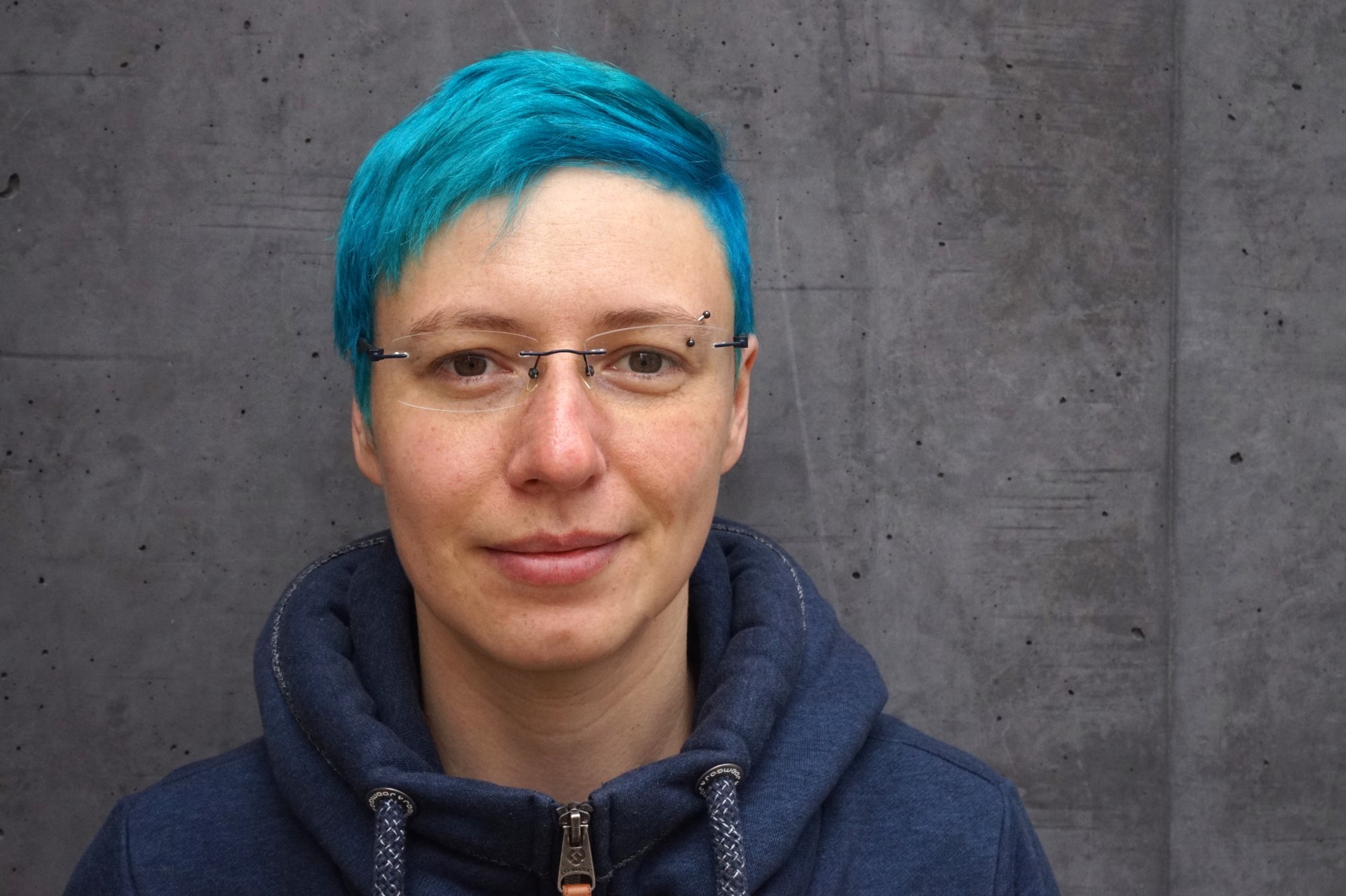Special Issue: Mental Health in Academia - Driving change with data - preparing for liftoff of the largest ever benchmark on researcher mental health in Europe
Newsletter

Jana Lasser,
a personal account
Jana Lasser is a PostDoc at the Computational Social Science lab at the Graz University of Technology and the Complexity Science Hub Vienna. Drawing from her experience in nonlinear dynamical systems, her current research activity centres around emergent phenomena in complex social systems. She employs methods from machine learning, data science and natural language processing to understand a diverse range of topics in the field of Computational Social Science. Next to her research she cares deeply about how the scientific community functions and dysfunctions. Within the COST Action "Researcher Mental Health Observatory" she leads the Survey Special Interest Group together with Stefan Mol.
Stefan T. Mol,
a personal account
Stefan T. Mol is assistant professor in organizational behavior and research methods at the Amsterdam Business School of the University of Amsterdam and chair of the Scilink Foundation, an organization aimed at providing transversal skills training to early stage researchers. Stefan's teaching centers largely on research methods, and his research on enhancing the fit between person, education, and the labor market, technology enhanced learning, the psychological contract, employability, career shocks and researcher mental health. Within the ReMO (Researcher Mental Health Observatory) COST Action, Stefan chairs the Institutional Level Working Group, and leads the Survey Special Interest Group together with Jana Lasser.

There is a moral imperative for us to help address the mental health crisis in academia. The Researcher Mental Health Observatory (ReMO) wants to drive change with data and realize the largest ever benchmark of researcher mental health in Europe – here we tell you how we are going to pull it off (spoiler alert: we may need your help!).
Academia has a mental health crisis
Since Katja Levecque and colleagues published their groundbreaking study in 2017, many of us have been distraught by the mental health crisis in academia. Researchers working in academic institutions have depression and anxiety rates that are up to twice as high as those of comparably aged and educated non-academics. Precarious working conditions and unsustainably heavy workloads are some of the likely culprits. Widespread and uninhibited harassment, power abuse, exclusion, exploitation, racism, and sexism may be others.
The many intuitive hypotheses that exist about the root causes stand in stark contrast to the lack of data at our disposal to untangle what actually contributes to better or worse mental health outcomes at the level of the individual academic. Our aim is to shed light on all these complex issues and their relation to mental health outcomes, and to guide our way to those interventions with which we can drive change. To this end, we are in the process of implementing what we aim to be the largest survey on researcher mental health and its contextual antecedents. We focus on contextual antecedents as opposed to solely addressing personal dispositions, because the former are:
- likely to be more amenable to change;
- more difficult to evidence (since next to individual variance, this requires variance in context);
- under-illuminated; and
- more likely to drive mental health outcomes.
The survey will provide a benchmark for the current state of mental health in academia and help us understand the mental health of academics against the background of their work environment. It will, furthermore, help us identify measures that research institutions might already have implemented to improve well-being. The data we gather will help us identify the best practices to drive concrete policy changes aimed at meaningfully improving the mental health of academics.
Capturing the complexity
What influences mental health outcomes in academia? Kurt Lewin famously said that behavior is a function of a person and the environment. Similarly, it makes sense to assume that mental health derives from a complex interplay between context and individual dispositions. There are personal factors such as gender, nationality, care obligations, heredity, physical health, and personality. These factors are associated with our working environment and our relationship with colleagues and supervisors. Supervisors directly influence how much control we have over our daily working life and the type and frequency of feedback we get, while our colleagues might play a big role in making us feel at home and well integrated at work. In addition, the amount and style of bureaucracy, processes for assessment and available social and psychological support structures are largely determined by the institution we work at. Last but not the least, institutions are embedded in a national context that influences for example how much funding there is for research.
A benchmark of researcher mental health
Given the many factors that might influence people’s experience of working in academia, we will need to ask them many questions about their work-life as researchers. To be able to draw statistically valid inferences and break down insights along different hierarchical levels, from the individual to the country, we will need a large number of observations. In addition, the data we are collecting is very sensitive. Lastly, our questions about mental health might make respondents aware about their mental health issues. This raises several challenges for our endeavor:
- We need to pick a suitable number of questions from the almost infinite selection of interesting questions.
- To enable a hierarchical analysis design, we need to reach many respondents and our selection of respondents needs to be representative of every institution and country.
- We need to ensure the highest standards of data protection while enabling researchers to work with the data to draw conclusions that can inform policy.
- We need to identify national and institutional services, and help-lines to direct respondents to if they want to seek help for any mental health issue.
Driving change with data
Under the umbrella of the “Researcher Mental Health Observatory” (ReMO), we have assembled a group of about 30 people to tackle these challenges. Among others, our group comprises mental health professionals, academics from the areas of social and work psychology, data scientists and people with organizing experience from workers representations. From students to early career researchers to professors, our group spans across academic groups and integrates a multitude of disciplinary, hierarchical and national perspectives. What binds us together is our interest in improving the situation regarding the mental health of academics and the conviction that the first step to drive change has to have its foundation in a solid understanding of the situation. Our integration into ReMO connects us to a large network of stakeholders interested in improving the situation regarding mental health in academia. Our results will directly feed into their efforts to develop policy recommendations and best practices across Europe.
We started our work in February 2022 and plan to launch the survey in March 2023. Once the data is collected, we will openly publish an anonymized version of the data set to enable as many researchers as possible to work with it. In parallel, we will write a high-level report that sheds light on the connections between working conditions in academia and mental health outcomes, and identifies best practices and interventions. In addition, we will support researchers in conducting studies on individual countries or demographics to drive change in specific contexts. We will enable institutions to request individual reports that tell them how they are doing within their national context and Europe.
Help us make this happen
Right now, we are deep in the trenches of getting this survey off the ground: We have screened hundreds of academic articles about measures to promote mental health and well-being. We have developed a data protection plan that will enable researchers to access the full data including all the demographic variables in a secure way. In addition, we have conducted a first pilot study in Montenegro, teaching us a lot about strategies to reach researchers with our survey. Currently, our biggest task is to develop our outreach strategy. We aim to spread the news about the survey both “bottom up” and “top down” to maximise reach. From the bottom up, we are getting in touch with stakeholders in researcher representations and developing a social media strategy. From the top down, we are developing a strategy to get institutions on board to support and spread our survey.
Did we capture your interest? Have we motivated you to contribute to the effort? There are multiple ways you can help us right now:
- If you are an individual looking to contribute a few hours of your time, you can join our survey dissemination effort. We are looking for individuals who can help us identify and contact stakeholders in their countries.
- If you are in a leadership position of an institution and are interested in running our survey there, please get in touch to help us reach as many people in your institution as possible.
- While we focus our efforts on data collection in Europe, we welcome people and organizations from other countries to join our project and disseminate the survey in their countries.
Jana Lasser
MSCA Fellow, Graz University of Technology, Austria
jana.lasser@tugraz.at
Twitter: @janalasser
Mastodon: mastodon.social/@janalasser
Stefan Mol
Assistant professor
University of Amsterdam, The Netherlands
s.t.mol@uva.nl